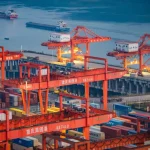In the shadow of Myanmar’s political turmoil and ongoing conflict, an insidious new industry has taken root and expanded at an alarming pace: scam centres that exploit tens of thousands of human trafficking victims. These operations, often disguised as legitimate call centers or online businesses, are built on deception, coercion, and violence. Victims, lured from across Asia and beyond with promises of well-paying jobs, instead find themselves trapped inside heavily guarded compounds where they are forced to participate in online scams targeting people worldwide.
- How Myanmar Became a Haven for Scam Centres
- The Human Trafficking Pipeline
- The Scale of the Crisis
- Stories of Survivors
- The Role of Armed Groups and Corruption
- Global Victims of the Scams
- Efforts to Combat the Crisis
- Expert Opinions on the Expanding Industry
- The Way Forward
- FAQs
- What are scam centres in Myanmar?
- How many victims are trapped in Myanmar’s scam centres?
- Who runs these scam centres?
- How do people end up in scam centres?
- What is being done to stop Myanmar’s scam centres?
- Conclusion
The growth of these scam centres is not only a humanitarian crisis but also a global security issue. Victims are often subjected to beatings, starvation, and torture if they fail to meet scam quotas, while billions of dollars are siphoned annually from unsuspecting individuals. This sprawling criminal enterprise has turned Myanmar’s border regions into hubs of organized crime, enabled by weak governance, militia groups, and corruption. Understanding the scale and brutality of this issue is essential to shed light on one of the darkest corners of modern exploitation.
How Myanmar Became a Haven for Scam Centres
The rise of scam centres in Myanmar is closely tied to the country’s political instability. After the 2021 military coup, Myanmar’s governance system deteriorated, leaving power vacuums across vast swathes of the country. Border areas, especially those along the Thai and Chinese frontiers, became fertile ground for criminal syndicates that thrive on weak state control.
Armed groups, local militias, and private companies took advantage of the chaos, establishing enclaves where scam operations could operate with impunity. Many of these centres are located inside massive compounds, some resembling modern office complexes, others resembling prisons. They are often heavily guarded, with barbed wire fences, watchtowers, and armed security personnel to prevent victims from escaping.
International law enforcement officials estimate that Myanmar has become one of the largest hubs for such criminal enterprises in Southeast Asia, rivaling operations in Cambodia and Laos.
The Human Trafficking Pipeline
Victims of Myanmar’s scam centres come from across the region. Recruiters target vulnerable individuals from countries such as China, Thailand, Malaysia, Vietnam, Bangladesh, and even Africa. Job advertisements promise high salaries in technology, customer service, or marketing. Once victims accept the offer, they are transported across borders—often illegally—and handed over to traffickers who sell them to operators of scam compounds.
Once inside, escape becomes nearly impossible. Passports and identity documents are confiscated, communication with the outside world is restricted, and armed guards patrol the premises. Victims are forced to work long hours creating fake online identities, running romance scams, cryptocurrency investment frauds, and lottery schemes.
Those who refuse to comply face severe punishments, including beatings, electric shocks, and even public humiliation. Some reports detail victims being sold multiple times between scam centres, turning human lives into commodities in an illicit marketplace.
The Scale of the Crisis
The numbers are staggering. Rights groups and United Nations officials estimate that tens of thousands of trafficking victims are currently held in scam compounds across Myanmar. Some advocacy organizations believe the figure could exceed 100,000 when including victims in neighboring Cambodia and Laos.
Financially, these scam centres generate billions of dollars annually. A single large compound can defraud victims around the world of millions of dollars each month. The combination of cheap forced labor and advanced digital fraud techniques makes these operations highly profitable, fueling further expansion.
In 2023, the United Nations Office on Drugs and Crime (UNODC) reported that cyber scam networks in Southeast Asia, many centered in Myanmar, had become one of the fastest-growing forms of transnational organized crime. This alarming trend is reshaping the global landscape of fraud and human trafficking.
Stories of Survivors
Behind the numbers are harrowing personal stories. Survivors who manage to escape describe their ordeals as a mix of physical abuse and psychological torment. One young man from Vietnam recounted being lured with the promise of a job in IT. Upon arrival, he was locked inside a compound in Kayin State and forced to scam people online. When he failed to meet his quota, guards beat him with sticks and deprived him of food for days.
Another survivor, a woman from Thailand, was tricked into believing she would work as a hotel receptionist. Instead, she was trafficked to a compound where she had to engage in online romance scams, pretending to fall in love with victims before coaxing them into fake investments. “It was like being trapped in a nightmare,” she said. “You couldn’t run. If you disobeyed, you were beaten. If you begged to leave, they demanded ransom.”
These testimonies highlight the cruelty of a system that dehumanizes victims, stripping them of dignity and using their suffering as a source of profit.
The Role of Armed Groups and Corruption
One of the reasons scam centres have flourished in Myanmar is the involvement of powerful armed groups and corrupt officials. Many compounds are located in territories controlled by militias or ethnic armed organizations, which provide protection in exchange for a share of profits. In some cases, these groups directly own and operate scam businesses as part of their funding networks.
Corruption within local administrations also plays a critical role. Officials often turn a blind eye to trafficking operations, allowing trucks carrying victims to pass through checkpoints or enabling the movement of illicit funds. This complicity creates an environment where scam centres can expand rapidly, despite international pressure to dismantle them.
Global Victims of the Scams
While the direct victims of trafficking endure unimaginable suffering, millions of people worldwide are also affected by the scams themselves. Online fraud originating from Myanmar’s compounds targets individuals across Asia, North America, and Europe. Victims are tricked into fake investment schemes, cryptocurrency fraud, and love scams that drain life savings.
In some cases, entire families are financially ruined by these elaborate schemes. Law enforcement agencies in the United States, China, and Europe report increasing numbers of cyber fraud cases traced back to Myanmar. The damage extends beyond individuals, eroding trust in online platforms and financial systems.
Efforts to Combat the Crisis
International organizations, foreign governments, and rights groups have begun to address Myanmar’s scam centre crisis, but progress is slow. Cross-border rescue missions, often coordinated with NGOs, have succeeded in freeing small groups of victims. For instance, coordinated operations between Chinese and Thai authorities have led to the repatriation of hundreds of trafficked citizens.
The United Nations has called for urgent action, framing the issue as both a human trafficking emergency and a cybersecurity threat. Advocacy groups are pressing for sanctions against individuals and companies linked to scam operations, as well as greater cooperation among Southeast Asian nations to shut down trafficking networks.
However, dismantling the scam centres remains difficult as long as Myanmar’s political situation remains unstable and armed groups retain significant control over border areas.
Expert Opinions on the Expanding Industry
Experts warn that unless urgent action is taken, Myanmar’s scam centre industry will continue to expand. Jason Tower, a regional specialist on transnational crime, noted that “the convergence of political instability, corruption, and global demand for cyber fraud has created a perfect storm. Scam centres are no longer just a fringe issue; they represent a new criminal economy.”
Similarly, rights organizations stress the importance of viewing the crisis through both a humanitarian and technological lens. As scam centres integrate sophisticated digital tools, their ability to defraud victims globally will only increase.
The Way Forward
Addressing the crisis requires a multi-pronged approach. Stronger international cooperation is essential to track financial flows, prosecute organizers, and rescue victims. Greater awareness campaigns can also help reduce the number of people who fall prey to fraudulent job advertisements.
Equally important is long-term political stability in Myanmar. Without governance reforms and stronger law enforcement, criminal networks will continue exploiting power vacuums. Regional organizations such as ASEAN must play a more active role in pressuring Myanmar to dismantle scam centres and prosecute those responsible.
FAQs
What are scam centres in Myanmar?
Scam centres in Myanmar are criminal compounds where trafficking victims are forced to run online fraud schemes, including cryptocurrency scams, romance scams, and fake investments.
How many victims are trapped in Myanmar’s scam centres?
Rights groups estimate that tens of thousands of victims are held in scam compounds, with some reports suggesting the number could exceed 100,000 across Southeast Asia.
Who runs these scam centres?
Many scam centres are operated by organized crime groups, ethnic militias, and corrupt business networks. They often operate in areas with weak government control.
How do people end up in scam centres?
Victims are typically recruited through fake job offers promising high-paying opportunities. Once they arrive, their documents are confiscated, and they are trafficked into scam operations.
What is being done to stop Myanmar’s scam centres?
International organizations, NGOs, and regional governments are working to rescue victims and disrupt trafficking networks. However, instability and corruption in Myanmar make it difficult to fully dismantle these operations.
Conclusion
The story of Myanmar’s expanding scam centres is one of human suffering, systemic corruption, and transnational crime. Behind the fortified walls of compounds across the country, tens of thousands of trafficking victims endure unimaginable abuse while fueling a global fraud industry that robs countless others of their savings and security.
This is more than a regional issue—it is a crisis that links the fates of vulnerable job seekers, unsuspecting online victims, and entire economies. Combating it requires collective will, stronger governance, and international solidarity. Until then, Myanmar’s scam centres will continue to serve as both prisons for the trafficked and engines of global cybercrime, a grim reminder of the human cost of unchecked exploitation.












